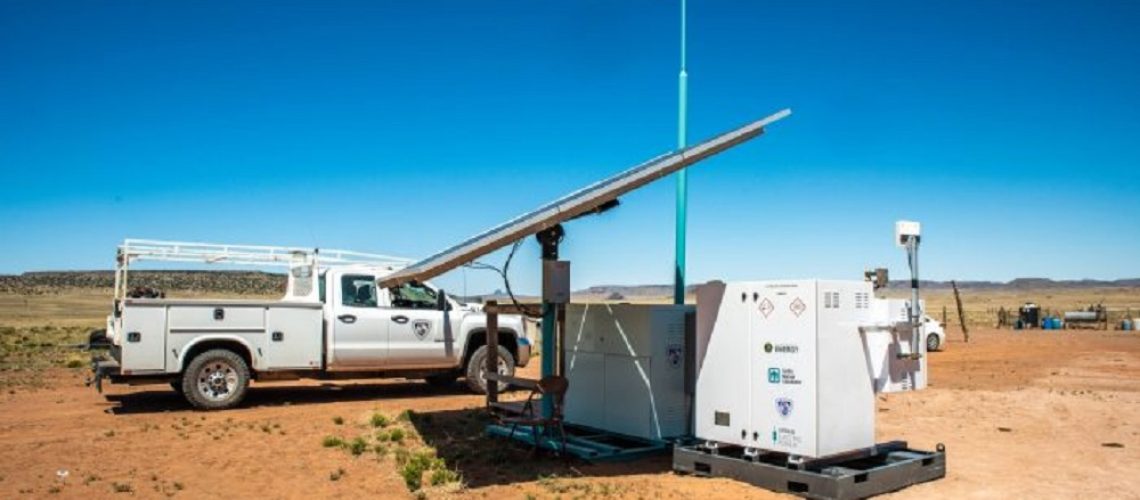The home chosen for the first demonstration system can use its solar system when the sun is shining and the charged battery when it’s not, even when temperatures spike well over 100 F.
A family living off grid in the Navajo Nation in Arizona is using a new 13 kWh energy storage system to provide power whenever the sun isn’t shining, thanks to a demonstration project conducted by Urban Electric Power for Sandia National Laboratories’ Energy Storage Demonstration Projects team, and the Department of Energy’s Office of Electricity Energy Storage Program. What’s unique about this energy storage system is that it uses the common alkaline battery.
Previously the home was using lead-acid batteries to back up the solar energy system, but recently Urban Electric Power replaced those as part of the demonstration project of its rechargeable alkalines. The new installation stores enough electricity from the solar array to power the home for several days between recharges. With summer temperatures spiking over 100 degrees in recent weeks, the alkaline batteries are holding up well, as they have been tested to operate at more than 122 F.
The advantage of alkaline batteries over lead acid is that alkalines don’t require regularly refilling the batteries with electrolyte as flooded lead-acid batteries do. The alkalines have been demonstrated to last up to eight years with minimal capacity fade.
“We can provide long life with no maintenance, as shown by the IEC Solar Protocol testing,” said Gabriel Cowles, VP of commercial strategy and finance Urban Electric Power. “It’s the best of both worlds.” In addition, the standard zinc-manganese dioxide chemistry of these alkaline batteries is certified to pose no risk of “thermal runaway,” or hot, hard-to-extinguish fires, a problem that can face lithium batteries.
More than 15,000 residents live without grid-supplied electricity on the Navajo Nation, which spans 17.5 million acres across parts of Arizona, New Mexico, and Utah. To address their needs, the Navajo Tribal Utility Authority has installed 500 solar PV and energy storage systems to date. The Authority takes a three-pronged approach to deploying the solar systems, which is “safety, reliability, and efficiency,” according to Derrick Terry, renewable energy specialist for the Authority and a member of the Navajo Nation. The Authority has had a 30-year partnership with Sandia, which Terry said helps “with the latest knowledge and technical advisement, so that we can deliver these systems to our remote families.”
Urban Electric Power, based in Pearl River, New York, was spun out of federal and state research fund sfrom the City University of New York Energy Institute. The company’s focus is to transform the traditional alkaline battery, such as the AA, into a rechargeable that meets the needs of changing energy infrastructure. The battery technology uses zinc and manganese dioxide, which are both earth abundant and safe, and the batteries are aqueous, making them resistant to fire. Certified to UL standards, the batteries can be readily stacked to scale capacity and voltage for various market needs from residential power backup, to commercial, to industrial and utility-scale energy storage.
“Tribal projects are not only an obligation for DOE, but they provide valuable experience for off-grid applications in the US and abroad,” said Dr. Imre Gyuk, who directs the DOE Energy Storage Program Two more demonstration projects at Navajo homes are moving ahead with Urban Electric Power batteries.



